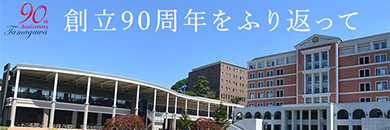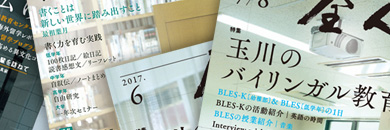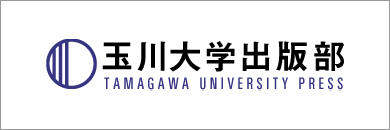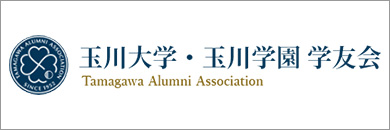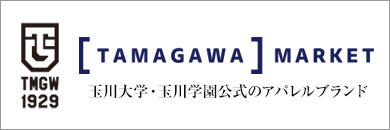STEM LED野菜
新しい野菜生産システム「Farmtory」を支える
「STEM」教育
世界的な食料需要が高まっていくだろうという予測のなか、日本農業の建て直しが求められています。中国、インド、アフリカ諸国、この3つのエリアの総人口は、世界人口の半分に迫ります。問題は、この3エリアのどれもが今後急速に経済発展し、そこでの食料需要が急速に高まるだろうと予想されていることです。経済レベルが向上するなかで、人々が豊かな食生活を求めることを誰も否定はできません。すべての先進国は高い経済力を背景に豊かな食生活を謳歌してきました。これから経済発展しようとしている新興国にそれを求めてはいけないという権利はどの国にもありません。しかし、そこで必要となる食料をどのように確保するかについては、現在ほとんど目処が立っていないというのが実状です。
そうした状況のなか、日本の農業の実状はたいへん厳しいものがあります。1億3千万人を抱える国の食料自給率は、カロリーベースで40%、穀物ベースでは27%にとどまります。高齢化した家族農家主体の農業では、急速な食料自給率の向上や農業生産性の効率化は望むべくもありません。不安定な世界情勢の中で、もし日本の食料輸入に何らか支障が生じたら、その影響ははかり知れません。今後の世界の食料事情を考えると、日本の食料生産力の増強や食料自給率の向上は避けて通れない状況です。
食料の生産性を向上する方法として、システム化された農業技術が注目されています。オランダが中心となって施設園芸栽培の延長線上で開発されてきた温室水耕栽培技術もその一つです。日本では、多くの大学や企業が蛍光灯などの人工光を用いた室内型の作物生産システムの開発を試みてきましたが、装置や電力の費用がかかるわりに生産効率が低く、これまでうまく実用化が進んでいませんでした。玉川大学では、長年にわたってLEDを光源とした新しい食料生産システムの開発を進めてきました。LEDは、赤色光、青色光といった波長幅の短い単色光を集中して照射できるというすぐれた特徴があります。このLEDの特殊な光を利用して作物の生育や品質を精密にコントロールしようという試みです。
栽培環境を完全に制御した中での作物生産には、科学技術の総合的な取り組みが必要です。私たちが推し進めているLED光源による植物栽培技術については、これまでと比較して格段に耐久性が高く、ハイパワーなLEDの開発が必要でした。そのためには化合物半導体チップの製造技術や、LEDチップで発せられた光を効率的にランプの外に取り出すためのデバイス技術が必要です。LEDの純粋な単色光を使って、植物の生育や生理、作物の品質をコントロールするためには基礎的な光植物生理学を応用することがどうしても必要です。その他、栽培作物の生育状態を感知して制御するための光センシング技術、栽培環境を最適化するためのシミュレーション技術、栽培管理とマーケット情報をコンピューターでつなぐICT技術など、新しいLED野菜生産システムの開発には多くの科学技術、工学技術の複合的な応用が必要でした。
現代では一つの科学分野だけで新しい技術開発や社会で広く用いられる製品開発が進むことはありません。種々の科学、工学、応用技術分野の成果を横断的に組み合わせて、それらを総合的に利用することによって初めて新しい技術が誕生します。そうした多くの分野にまたがった技術開発をするためには、どうしても基礎的な科学技術に精通し、その知見を自由にに扱える人材の育成が不可欠です。初等・中等教育における理数教育、高等教育における基礎専門科目や研究所組織での専門教育など、一貫した取り進めが重要であり、こうした点で玉川学園・玉川大学は戦略的で充実した教育体制を整備しています。
教育分野でのSTEM(Science, Technology, Engineering and Mathematics)の重要性が注目されています。新しい価値を生み出す科学技術の開発のために、科学、技術、工学、数学分野の教育、人材育成がますます重要になってきているという認識が広がっていることによります。確かに、LEDを光源とした新しい野菜生産システムの開発を一つとってみても、多くの科学、技術、工学分野の研究成果や情報の複合的な応用が必要であり、そうした知見を十分に備えた人材が育ってはじめて多くの成果や技術開発につながるものと考えます。
玉川大学で新たに開発されたLED野菜生産システムをFarmtoryと名づけました。農場(Farm)で培った栽培技術と工場(Factory)で蓄積された生産技術を組み合わせた複合技術という意味の造語ですが、LEDに関わる工学技術、LED高品質野菜の栽培技術、野菜の生産管理技術やその技術レベルを維持するための技術者育成体制までも含めた総合的な食料生産システムを意味する言葉として使っていきたいと考えています。
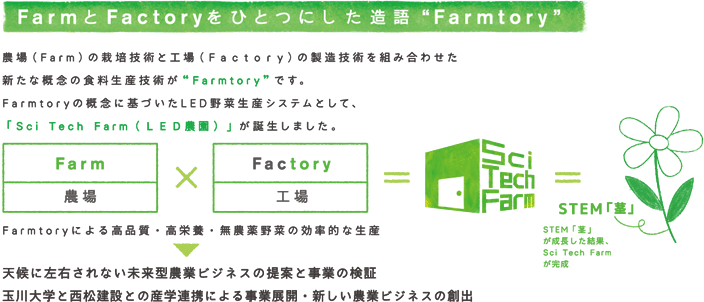
Farmtoryはまさしく食料生産に関する新しい応用技術です。STEMに代表されるような理数教育、科学技術教育を重視した玉川学園・玉川大学の教育システムの中ではぐくまれた成果の一つだと考えています。玉川学園・玉川大学でのSTEM(茎)を大きく育てることにより、これからもFarmtoryのような「花」を次々と咲かせていきたいと願っています。

関連リンク
“STEM” education for bolstering the new vegetable production system, “Farmtory”
As food demand is predicted to rise worldwide, Japan faces a pressing need to rebuild its agricultural industries. The combined total population of China, India, and the African nations currently accounts for almost half of the world’s population. The countries in these three regions are expected to undergo rapid economic development, sharply increasing food demand. These prospects have raised great concerns. As the economy of a country develops, the people of that country inevitably seek out a richer and more varied diet. Backed by the economic strengths of their countries, residents of advanced nations have enjoyed access to a wide and abundant range of food.
Japan’s agricultural industry currently faces serious challenges. With a population of 130 million, Japan has a food self-sufficiency rate of 40% on a calorie basis or 27% on a grain production basis. With a system of agricultural production dominated by family farms and elderly workers, Japan cannot expect rapid improvements in the food self-sufficiency rate or efficient agricultural production. Instability in global politics affecting imports of food into Japan may have catastrophic effects on the nation. In light of the potential risks inherent in the global food system, Japan must strengthen its food production capacity and boost the self-sufficiency of its food supply.
Systematized farming techniques are currently drawing attention as a way to improve food productivity. Among the associated techniques is greenhouse hydroponics, developed in the Netherlands and elsewhere as an extension of protected horticulture. In Japan, many universities and corporations have attempted to develop an indoor-type crop production system based on artificial light, such as fluorescent lamps, but no practical systems have emerged to date, in large part due to the modest gains in production efficiency achieved compared to the high cost of the systems and electricity used. For many years, Tamagawa University has sought to develop a new food production system based on LED light sources. LED technology is capable of emitting sharply focused monochromatic light with narrow band width, such as red light or blue light. We are seeking to harness the unique characteristics of LED light to achieve precise control of crop growth and quality.
Producing crops in a completely controlled cultivation environment requires and draws on research efforts in various areas of technology. To develop a plant cultivation technique based on LED light, we had to develop LEDs with significantly higher output and durability than conventional ones. This required manufacturing technologies capable of producing compound semiconductor chips and device technologies for effectively extracting light emitted from LED chips. An application of basic photobotanical physiology is essential to controlling plant growth, plant physiology, and ultimately crop quality by utilizing pure monochromatic LED light. In addition, developing a new LED vegetable production system requires the integrated application of various scientific and engineering technologies, including optical sensing technologies to detect and control growth conditions, simulation technologies to optimize cultivation environments, and ICT technologies to link cultivation management and market information.
The days have long passed when a new technology or new consumer product could be developed based on the knowledge and expertise of one field of science. Now, new technologies emerge from the integration of scientific and technological achievements drawn from a wide range of fields, including basic science, engineering, and applied technologies. Developing new technologies from technologies spanning many fields requires the development and support of researchers to ensure they acquire a solid understanding of basic scientific principles and are capable of applying a cross disciplinary approach to their knowledge. This points to the importance of a consistent and coherent approach to education, ranging from science and mathematics at the primary/secondary levels to basic and specialized topics in higher education and technical training at research institutions. Based on this recognition, Tamagawa Academy K-12 & University has an extensive and strategically designed range of course offerings.
STEM (Science, Technology, Engineering, and Mathematics) is gaining growing prominence in the field of education, due to widespread recognition that an education encompassing science, technology, engineering, and mathematics, as well as the development of human resources in these fields, are critical to the development of scientific technologies with the potential to create new value. Indeed, the development of the new vegetable production system using LED required the integrated cross disciplinary application of research results and data drawn from a wide range of sciences, technology, and engineering. We believe developing human resources with extensive knowledge is essential to achieving significant research results and to developing new technologies.
“Farmtory,” a word combining “farm” and “factory,” is the name coined by Tamagawa University for its newly-developed LED vegetable production system. The name suggests a technology that integrates cultivation techniques fostered at farms with production techniques devised at factories. We want to use this term to refer to comprehensive food production systems developed through various technologies and efforts, including engineering technologies related to LED, high-quality vegetable cultivation technologies based on LED technology, vegetable production control technologies, and education/training systems for developing the specialized technicians required to maintain the technologies involved in production.
Farmtory represents a new applied technology for food production, one we are proud to count among the results achieved by the educational philosophy of Tamagawa Academy K-12 & University?a philosophy that emphasizes the science, mathematics, and technology represented by the STEM concept. By nurturing STEM as the growing stem of Tamagawa Academy K-12 & University, we hope to see a flowering of leaves and blossoms such as Farmtory.


